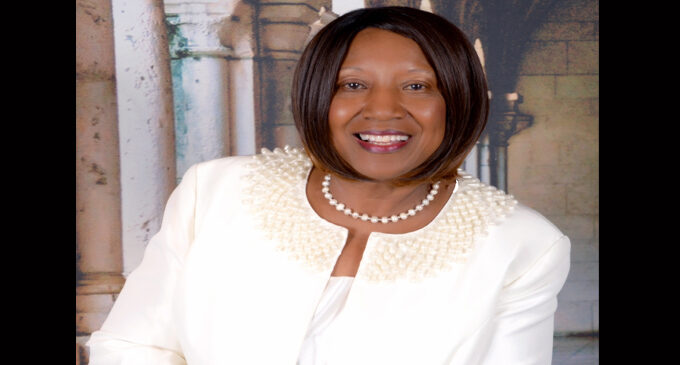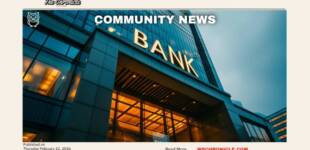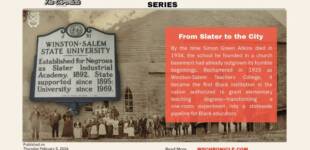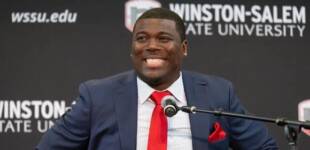Reflections of a child of the civil rights movement
Dr. Ruth Purifoy Cummings

By Dr. Ruth Purifoy Cummings
I was born on February 29, 1952, in Selma, Alabama, the seventh of thirteen children in our family. Our address was Rte. 1 Box 8, Selma, Alabama. We grew up in a segregated community. Everything that we needed was within walking distance: the church, the grocery store, the school, and all our friends. My father’s sister, Aunt Mary, lived three streets over and next to her house was land that the family owned where we grew corn, sweet potatoes, greens, squash, black-eyed peas, green beans (which we called snap beans), and other vegetables. The neighborhood was still rural, so we raised hogs and chickens, which we sold as well as put on the table. My maternal grandparents owned a farm in the country, which was on the Alabama River. There they grew cotton, cucumbers, corn, all kinds of fruit. Everything that was not grown on the community property was grown in the country and we wanted for nothing.
Sunday mornings were special. We were treated to fried chicken, grits and gravy, and fresh homemade biscuits. We enjoyed our breakfast as we listened to the radio as the Angelic Gospel Singers sang “Touch Me Lord Jesus.” Life was good.
My mother taught me to read and write in the backyard while she washed clothes and hung them on the line to dry, first one load and then another. I learned my ABCs and 123s by writing them on the ground. “Having Fun with Dick and Jane” was our reading primer and by the time I was three, I had learned to read. Life was good.
But between my 3rd and 4th birthdays, I would learn that life was not good for us as a race of people. One late afternoon, a group of men in cars and pick-up trucks wearing white robes with their heads covered with white hoods and carrying guns, rode through our neighborhood. Our parents tried to rush us into the house, but we were not afraid, just fascinated, so we did not run, we just stood there. Daddy called us into the house and explained to us who those men were. He explained that there was trouble between the Negros and white people in Montgomery and the Klan wanted to be sure the trouble would not spread to Selma.
The lesson that followed that incident would be our first on how to survive as children of the civil rights movement. We were taught that because we are Christians and because we followed the commandments of Jesus Christ, we must love everybody, but do not trust anybody unless you know them. These instructions changed my life forever.
After our community was annexed into the city, the address changed to 712 Highway 80 East, in Selma. My father, Nelson Purifoy, and my mother, Laura Ellen Perry Purifoy, had moved into this three-room house in the early 1940s. Over the years as the family grew, so did the house. My father, a preacher and church planter, was also a carpenter. He would add rooms to the house, so by the time my youngest brother was born in 1964, we had three bedrooms, a dining room, indoor bathroom, and a den.
This house was exactly one mile from the banks of the Alabama River and to get to downtown Selma, we had to walk across the Edmund Pettus Bridge, the same bridge that was the center of attention on Bloody Sunday, March 7, 1965.
My personal involvement with this phase of the civil rights movement began when African American citizens (at that time we were called Negro) persisted in claiming their right to vote, a right that had been denied to them. Or should I say us? To tell this bit of my history through the eyes of a 13 year old will give you only a tiny glimpse into what shaped my life as a child of the civil rights movement.
At first, we children were not allowed to participate in the demonstrations as we called them. We were not allowed to attend the mass meetings or participate in any other activities until the adults of the movement were being beaten, losing their jobs, and threatened on every turn. Then the leaders of the movement decided to use children; perhaps the sheriff and his deputies would not harm children.
Some things I remember: My first act of civil disobedience was to leave Tipton High School along with other students and walk to downtown Selma and proceed to march around the Dallas County Courthouse. We were not harmed, but we were suspended from school. When our parents attempted to take us back to school, we were met by the principal who refused to let us in by order of the school board president. Our suspension was short-lived, but that was not the last time we skipped school to participate in the demonstrations.
The same principal who stood in the door of the school and refused to let us into the school, attended the Bloody Sunday march. We were told that he was sent there by the school board to take names of those students who took part in the demonstration. We were lined up on the opposite side of the street from those who were to cross the bridge. The principal was on the side where we were. When he saw the deputy approaching on horseback, he stood and proclaimed, “I’m not with them.” The deputy replied, “You are a nigger aren’t you? and hit him in the head with his Billy club. The principal spent a considerable time in the hospital. He would recover.
Mrs. Pearlie Hale had passed the literacy test required for becoming a registered voter, only to be told that she cheated and was required to take the test again, which included naming all 67 counties in the state, and how many beans are in a bushel. Such were the things done to prevent us from voting.
My brother Hosea (now deceased) was an active participant in the movement from start to finish. He was wounded on Bloody Sunday and came home reeking of tear gas, with minor cuts and bruises. He walked the entire 50 miles from Selma to Montgomery and was proud to be in Montgomery on that final day. He was arrested more than once for demonstrating. He related one time when he was arrested, they were jam-packed into one cell, the women were in another. The men could hear the women screaming as the jailers were mistreating them. To stop the treatment the women were experiencing, my brother, along with others, ripped the toilet out of the floor causing a flood and the men were beaten, but they were not sorry for their actions.
My mother became a part of the movement when she agreed to transport freedom riders to and from mass meetings. She would also carry lunches to the walkers on the Selma to Montgomery march. My mother would go on to take us to Montgomery to the state capital on the final day of the march.
My father was a lot less of a participant in the whole movement. He felt the need to not be associated to protect us. We did convince Daddy to attend the mass meeting held at Brown Chapel AME Church on March 8, 1965, where Dr. King was the speaker. Daddy was told that the church would be overcrowded and a seat would be hard to find, and no matter what happens, do not leave your seat. He got there early and found a seat in the balcony and waited for the program to begin. As soon as they asked everyone to stand for prayer and he stood up, someone slipped into his seat and he had to stand the entire program. At the end of the evening he was excited that he stayed and that he heard Dr. King speak.
One vivid memory that we all have of Bloody Sunday is what looked to us like smoke coming from the Edmund Pettus Bridge and the news reporters scrambling to find homes with telephones so they could make their reports back to the news stations. Richard Valeriani, NBC News, knocked on our door and asked to use the telephone. My mother let him in and he made his report, then proceeded to give my mother five dollars and a peppermint. He said that was all he had to give. My mother was grateful as she had loaned her last two dollars to one of our neighbors earlier that day. She reminded us “If you are good to others, God will be good to you.”
EDITOR’S NOTE: There is more to Ruth Purifoy Cummings’ story and she is open to sharing her experiences as a child growing up in Selma during the civil rights movement.









